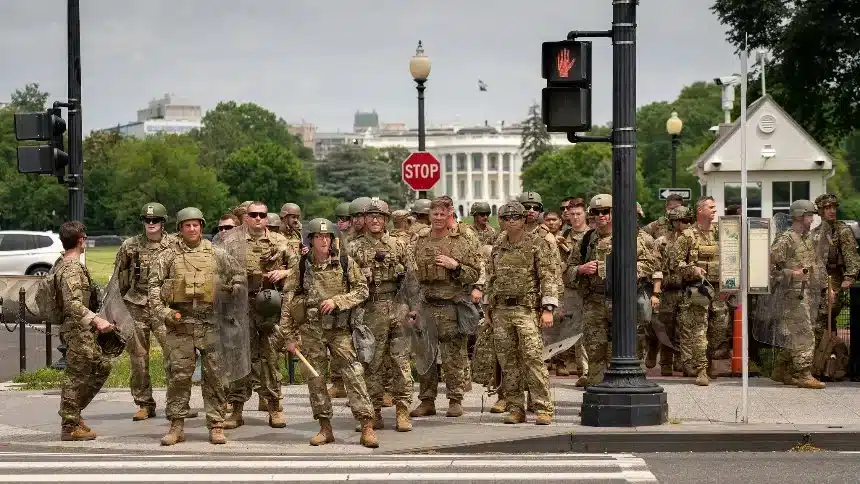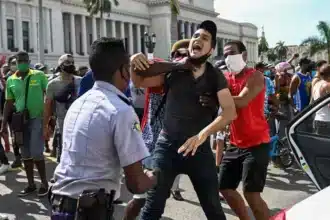States often face exceptional situations. These may range from wars to public dangers that threaten a nation’s very existence. In these challenging moments, the delicate balance between preserving state security and upholding human rights becomes paramount.
Rights restrictions emerges as a pivotal tool, offering states a way to navigate these turbulent waters. Yet, it’s not a carte blanche for governments. International law sets specific boundaries, ensuring that any restriction on recognized rights requires clear legal provisions. These restrictions must respond to pressing social needs, be proportionate to the situation, and avoid infringing on non-derogable rights.
Furthermore, they should not compromise the democratic fabric of a society. In essence, while rights restrictions grants states some leeway in exceptional circumstances, it also imposes a responsibility: to protect the nation without trampling on the very rights that define our shared humanity.
International Directives on Rights Restrictions
Global legal frameworks provide guidance on how states should approach the complex issue of rights restrictions. The cornerstone, the 1948 Universal Declaration of Human Rights, permits states to curtail certain freedoms during emergency situations.
Echoing this stance, the European Convention, through Art. 15, specifies that during events such as wars or imminent public threats, states may modify their commitments. Yet, it’s crucial to note that some rights remain sacrosanct. These include the unassailable right to life, an unequivocal prohibition against torture, and an absolute freedom from slavery and forced labor.
A nation is secure not just when its borders are defended but when its citizens are thriving in every aspect of their lives.
But even within these guiding parameters, an essential doctrine emerges: the principle of proportionality. This principle ensures that any limitations on rights are not only justifiable but also measured, avoiding undue excess. Such a balance becomes pivotal, as the goal remains the safeguarding of human dignity, even in times of severe crisis.
As such, while international directives offer states a degree of flexibility, they also demand rigor and responsibility in ensuring that rights are restricted only when absolutely necessary and in the fairest manner possible.
The Broadened Concept of Security
Security has undergone a transformation in its definition over the years. Whereas once it primarily focused on shielding national borders from outside aggressions, contemporary interpretations embrace a holistic view. The pivotal moment for this shift was the 1994 Human Development Report by the United Nations Development Program. Within this report, security was articulated through seven distinct yet interconnected dimensions.
It’s essential to ensure that any curtailment aligns with international standards.
These categories include economic security, ensuring stable incomes and employment; food security, guaranteeing access to essential nutrition; health security, preserving public health and countering diseases; personal security, defending individuals from physical harm; community security, promoting harmonious relations among groups; political security, ensuring citizens’ rights and freedoms; and environmental security, addressing threats to our natural habitats.
This multifaceted understanding of security emphasizes the interconnectedness of various societal aspects. It suggests that to truly ensure a nation’s security, one must consider all elements that contribute to the well-being of its populace. This perspective resonates with the notion that a nation is secure not just when its borders are defended but when its citizens are thriving in every aspect of their lives.
Rights restrictions: Seeking Equilibrium
As nations grapple with diverse challenges, the quest for equilibrium between individual rights and necessary restrictions becomes paramount. The framework of rights restrictions offers a way to navigate these complex waters, but it’s essential to ensure that any curtailment aligns with international standards.
The exceptional nature of a crisis doesn’t offer carte blanche to states.
Central to this balance is the principle of legality. Not every restriction is justified. For rights restrictions to be legitimate, it must be transparent, accessible, and meticulously defined. Ambiguity or arbitrariness is not an option.
But when is a rights restrictions warranted? The answer lies in the magnitude of societal needs. Any imposed measure should serve an urgent, profound purpose, addressing genuine threats without eroding the democratic foundations of the society.
Interestingly, the international discourse doesn’t provide a closed list of justifiable reasons for such restrictions. While some reasons are explicitly recognized, the door remains open for truly exceptional circumstances, emphasizing the notion that the bar for rights restrictions is set exceptionally high.
Exceptional Circumstances and Their Implications
Unprecedented events challenge the established order of things. In these times, the delicate equilibrium between state security and human rights comes under scrutiny. Rights restrictions, although a difficult choice, might emerge as an unavoidable response.
During these unparalleled crises, the safety of the citizenry and the stability of the state may overshadow some human rights. This doesn’t mean an unchecked power grab; rather, it requires a measured response grounded in principles. Each action, under the banner of rights restrictions, must undergo rigorous evaluation to ascertain its relevance and necessity in protecting public welfare.
The central aim? Ensuring the lifeblood of the nation continues to pulse even amidst chaos. But there’s a caveat. Any attempt to prioritize security should never, under any circumstance, lead to the degradation of human dignity. Citizens might accept temporary limitations for the greater good, but they should never feel undervalued or subhuman.
The exceptional nature of a crisis doesn’t offer carte blanche to states. It’s an invitation to act responsibly, ensuring that even in dire straits, the core values of humanity remain undiminished.
Drawing the Line
The complexities of governing during crisis lie in balancing state security with preserving human rights. This task is eased by the existence of an international legal framework, which establishes clear limits. Rights restrictions, while a powerful tool in emergencies, has its boundaries.
The edicts of this framework provide a roadmap for states to navigate crises without trampling upon fundamental rights. The stipulations are clear: any limit placed upon rights should neither discriminate nor erode the foundational essence of these rights. Such limitations should be both necessary and proportionate to the magnitude of the challenge faced.
Moreover, true commitment to these ideals isn’t solely about obeying global laws. It manifests in a nation’s domestic legislation, reflecting a deep-seated respect for the principles laid out internationally. When a country’s internal laws mirror these international standards, it exhibits a genuine dedication to preserving the rights of its citizens, even in tumultuous times.
In sum, while the line between security and rights might seem blurred during crises, the international framework offers clarity. Adherence to these guidelines ensures that even in the face of adversity, the sanctity of human rights remains inviolable.
Adapted from an academic study for a wider audience, under license CC BY 4.0.









